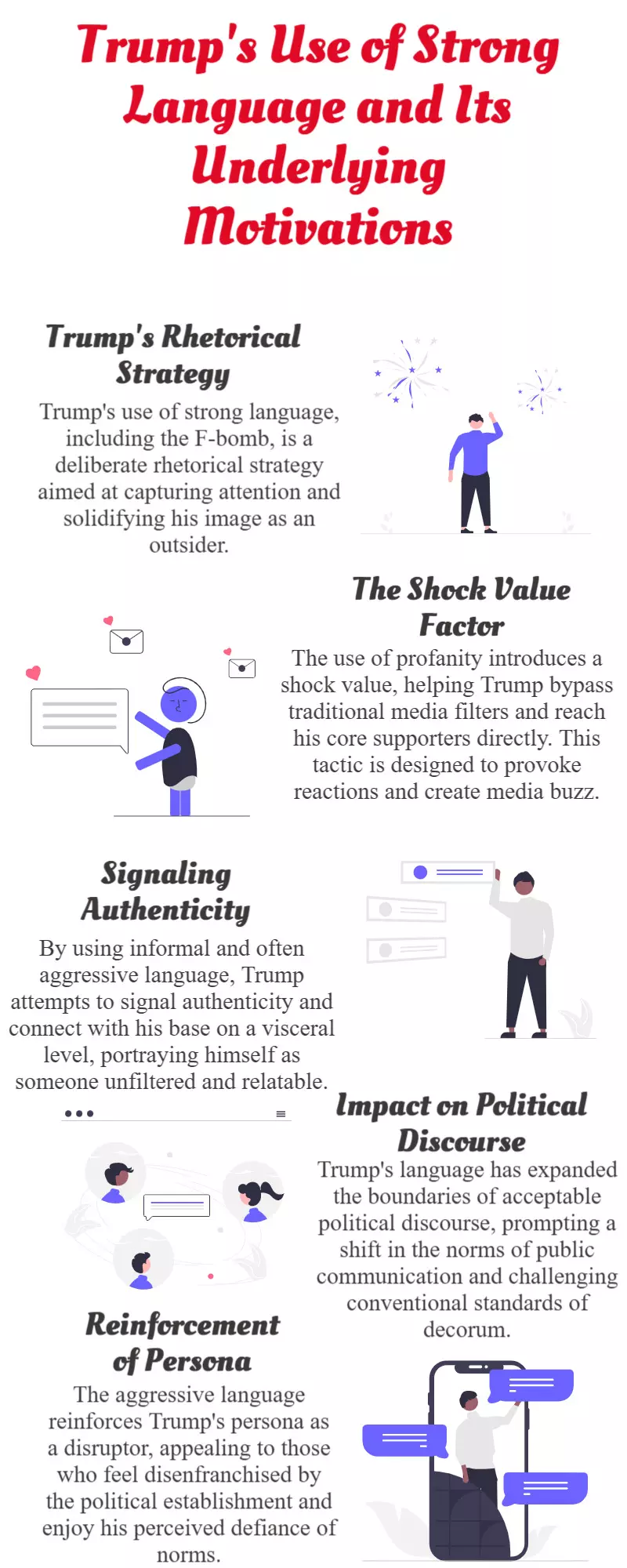Trump's F-Bomb: Why the Ex-President Makes Fast, Furious Remarks

By : Sandhya
Trump’s Outbursts and Decision-Making Style: A Psychological Breakdown
By Geoff Beattie | Edge Hill University | For The Conversation
Former US President Donald Trump recently sparked global headlines once again with an emotional outburst during a peace negotiation attempt between Iran and Israel. On June 24, while speaking to reporters, Trump declared, “We basically have two countries that have been fighting so long and so hard that they don’t know what the f** they’re doing.”*
His expletive-laced statement came a day after announcing a ceasefire between Iran and Israel—one that fell apart almost immediately. His anger was visible and raw, and unlike most political figures, there was no attempt to correct or soften the language. He stormed off, visibly frustrated.
This is unusual behavior for a president. While past leaders may have used harsh language behind closed doors, Trump’s outbursts are often public and unfiltered. Dutch Prime Minister Mark Rutte even likened Trump’s behavior to that of a "daddy" figure after his profane comments.
A Psychological Perspective
To understand Trump’s reaction, it’s helpful to turn to psychology. In the 1930s, the frustration-aggression hypothesis suggested that aggression often stems from blocked goals. Although modern psychologists consider this an oversimplification, it still offers insight. While most people learn to manage frustration through reasoning and reflection, Trump’s reactions suggest a different path—immediate, emotional, and public.
Kahneman's "Fast and Slow" Thinking
Nobel laureate Daniel Kahneman’s Thinking, Fast and Slow helps us understand this better. He describes two systems of thinking:
System 1 is fast, intuitive, and emotional.
System 2 is slow, deliberate, and rational.
Trump seems to heavily rely on System 1—gut instincts and quick reactions—while often bypassing the more analytical System 2. This results in emotional, sometimes impulsive decision-making. While this can be effective in the business world, where he built his reputation, it’s risky in geopolitics where consequences are far-reaching.
Emotional Leadership and Risk
Trump’s emotional, visceral responses have proven polarising. His style energises supporters who see him as authentic and decisive. However, critics argue it leads to erratic policymaking and global instability.
His swift decision-making lacks the slower, reflective processes that System 2 requires. It’s this imbalance between gut instinct and rational oversight that many find troubling—especially in moments of international crisis.
Conclusion
Trump’s behavior, seen through a psychological lens, reveals a reliance on instinct and emotion rather than analysis and collaboration. While this may serve him well in high-pressure environments where speed matters, the geopolitical stage requires more deliberation and restraint. If the world is a delicate chessboard, it’s not enough to simply make fast moves—each one must be carefully considered.
